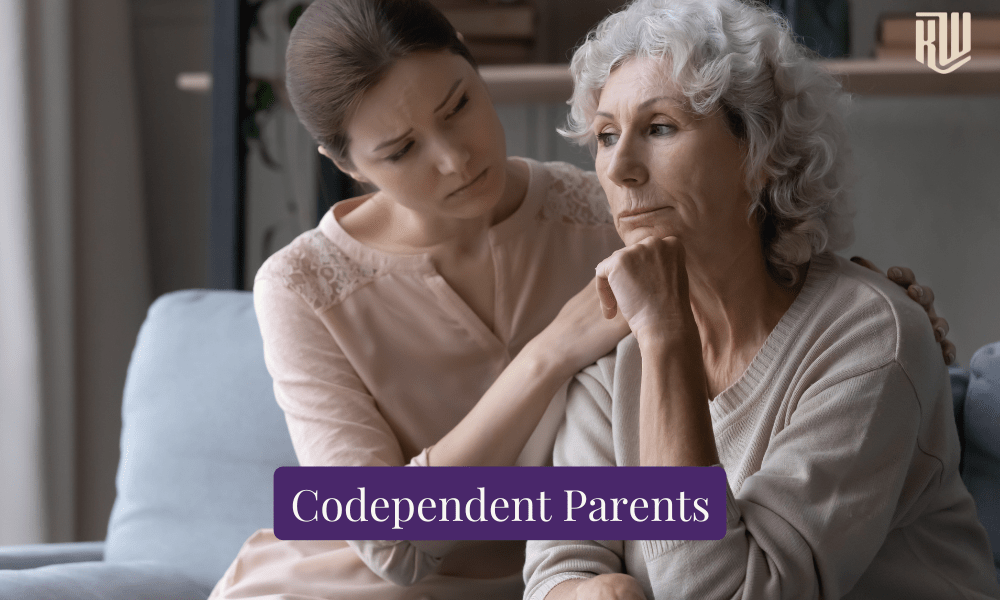In today’s Best Day Blog article I’m going to share with you 5 questions you can ask to discover if you were raised by codependent parents. I’ll also provide you helpful links, and help you identify how codependency might be showing up in your life.
Codependent Parents question one
When you were a child and you felt angry, sad or scared at anything your parents did or said, could you talk to them? Were you able to have a conversation about how you felt?
If you were unable to do so, this is a sign you were raised by codependent parents and suffered trauma. In particular, to fit into the family system you had to suppress your authentic self and create an adaptive persona. You most likely created a pleasing codependent persona.
Codependent Parents question two
Do you have any secrets from your parents? Having secrets shows both trauma and codependent parents. It means that to be your authentic self, even now as an adult is not safe. The underlying understanding is one of, “if mom and dad knew what I really thought and felt, what I really liked and believed, they would reject me.” Let that sink in. You have to lie to the two people who are supposed to love and accept you unconditionally. What an incredibly terrifying experience for a child to endure.
If you can not accept or attach to how devastating that truth is, you are now aware of how deeply entrenched in denial you are about your childhood environment. This is the false codependent persona you developed to protect your authentic self because it was too terrifying and rejecting to be you.
If you are an adult and still not speaking up or keeping secrets it is a sign that you are still holding on to the belief that it is your job to keep your family together and to make your parents happy.
Codependent Parents question three
Could you sit and have an open discussion with your parents about their perfect imperfections? Could you share your feelings about what happened in your childhood and feel that they would take ownership of what happened, or at least acknowledge what you were saying?
If you can’t do it then it’s a sure sign that you suffered trauma and were raised by codependent parents.
Codependent Parents question four
Do you excuse, minimize or justify your parent’s perfectly imperfect parenting? An example of this could be if someone was raised by very young parents and, therefore, any abusive or disruptive behavior is justified by ‘ But they were so young they didn’t know what they were doing!’ Or even worse, “It was good for me.”
These sentiments and using the word ‘but’ to excuse a parents behavior, are always combined with a feeling of being disloyal if they speak the truth about their parents. This is the disease of codependence. Lies, justification, secrets and living out of reality become the norm for survival.
Truth and responsibility are the cornerstones of love and intimate connected relationships. By not admitting and discussing these imperfections we are not loving our parents or in relationship with them.
Therefore, the most loving thing to do is to give them the responsibility they earned, and to remove this responsibility from yourself, as the child. By doing so, they may do their own healing and come to their own realizations about themselves and you can form an actual intimate loving relationship with each other.
Codependent Parents question five
Have you ever said I should have or I could have? Those are shamed-based statements of a child who was not accepted for being imperfect, human and limited. Instead of offering guidance and direction, the parent punished with shame and therefore a child becomes filled with “should’s and could’s.”
‘Should’ have or ‘could’ have created a feeling of not being valuable unless something was done perfectly, rather than simply being worthy for having tried. This is also true of ‘If’ statements which state that, in the example of a child, you only have worth “if” you accomplish something.
You will know you have healed from codependency, when your “if’s, “should’s,” and “could’s,” become “would’s.” For instance, ’I would have liked to have done that differently.” This is an acceptance of our perfectly imperfect nature. An acknowledgment that we are fallible and limited and most importantly, we forgive ourselves for our imperfections with out the need for shame
Who is codependent?
In my life experience I have yet to meet a person who can get through these five questions and therefore it is my professional opinion that we have all experienced trauma in childhood, codependent parents, and we all struggle with codependence. This is a dis-ease which is prevalent in society
Are parents to blame?
No. Blame is just more shame. A person cannot be blamed for doing the best they can with the information they had at the time. Since society has never taught us about these dynamics, every parent was doing the best they could with the information they had at the time.
Pia Mellody, in her book ‘Facing Codependence’ talks about this in great detail, she says,
“In reality, what we tend to call normal parenting very often isn’t healthy for the child’s development. It is less than nurturing or abusive parenting. For example, many people think the range of normal parenting includes hitting a child with a belt, slapping a child across the face, screaming at a child, calling the child names, having the child sleep with them or being nude in front of a child who is older than the age of 3 or 4. Or, they think it’s acceptable to require small children to figure out a way to deal with life’s situations and problems themselves, rather than providing a concrete set of rules for social conduct and some basic problem solving techniques.
Some parents also neglect to teach basic hygiene such as bathing, daily grooming, the use of deodorants, dental care, removing dirt and stains and body odor from clothes, and how to keep them mended, expecting the child, somehow, to know on their own.
Others believe that if children are not given rigid rules and swift, severe punishment for breaking them the children will become juvenile delinquents, teen unwed mothers or drug addicts. Some parents, after making a mistake after punishing a child in error, because the full facts were not clear at the time of punishment, would never apologize to the child for the mistake. Such parents conceive that an apology would be seen as showing weakness that might undermine the parent’s authority. Some parents believe, perhaps unconsciously, that children’s thoughts and feelings have little validity because the children are immature and need training.
These parents respond to a child’s thoughts and feelings by saying you shouldn’t feel that way or ‘I don’t care if you don’t want to go to bed, you’re going because it’s good for you’ . They believe they’re training the child in a functional way. Still other parents swing to the complete opposite extreme and overprotect their children, not making the children face the consequences of their own abusive and dysfunctional behavior.
Such parents are often very intimate with their children, using them for confidence and sharing secrets beyond the children’s level of development. This too is abusive. Many of us who were raised in homes where this kind of behavior was common, grew up in the delusion that what happened to us was normal and appropriate. Our caregivers encouraged us to believe that our problems arose because we didn’t respond appropriately to what happened to us, filled with baffling feelings and with a distorted way of looking at what happened in our family of origin.
We got the idea that the way our families behaved toward us was correct and our caregivers were good. This meant by unconscious deduction, that since we weren’t happy or comfortable with some things that went on in our childhood, we were there for the problem and we were not good. Also, we apparently couldn’t please our parents by being what we were naturally. This delusion that the abuse was normal and we were wrong locks us into the disease of codependence with no way out.”
While I believe it is true that parents are not to blame, they are responsible. In my reality it is each parents job to educate themselves on how to be a parent. That education never ends. If a parent chooses not to learn the skills and tools necessary it is kind and loving to hold them accountable for that choice.
Again, to love and be in relationship requires truth and responsibility. Each parent needs to take responsibility and admit the truth that they chose not to educate themselves. From that place, reclamation, reconnection and relationship are possible.
Helpful links
The Adverse Childhood Experience (ACE) study is a landmark study done which shows that 70% of us have experienced severe childhood trauma. We must, as a society, get into the reality of the epidemic of childhood trauma. Remember, relationship comes from living in truth and taking responsibility.
Take the quiz here to discover how many Adverse Childhood Experiences you suffered and begin your journey into truth and responsibility
To learn how your childhood trauma is repeating itself in every area of your adult life and how you are caught in what I call The Worst Day Cycle, I suggest my book Your Journey To Success.
Pick up Pia Mellody’s book ‘Facing Codependence’ and her other works, to learn the full healing process for your codependency.
Would you like to begin the healing journey from childhood trauma, and codependent parents? Enroll in my free masterclass ‘Your Journey to Emotional Authenticity’.
To watch the video and learn more click here:





